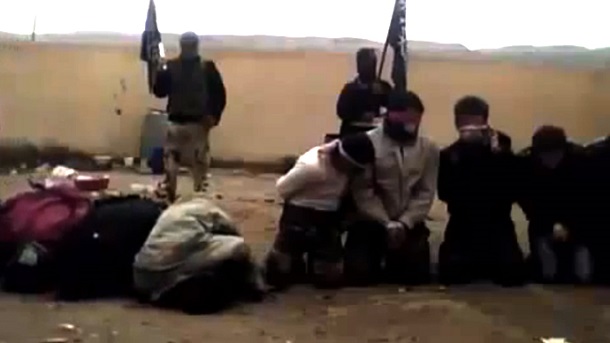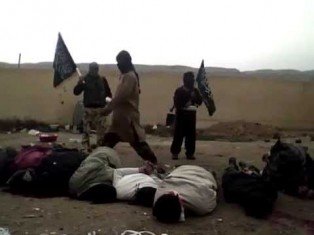Saudi Arabia is preparing to spend millions of dollars to arm and train thousands of Syrian militiamen in a new opposition force dubbed ’Army of Islam’ to fight the national military
 Saudi Arabia is preparing to spend millions of dollars to arm and train thousands of Syrian militiamen in a new opposition force dubbed 'Army of Islam' to fight the national military, The Guardian daily reported Thursday.
Saudi Arabia is preparing to spend millions of dollars to arm and train thousands of Syrian militiamen in a new opposition force dubbed 'Army of Islam' to fight the national military, The Guardian daily reported Thursday.
Citing Syrian, Arab and western sources, the UK newspaper said the intensifying Saudi effort is focused on Jaysh al-Islam (the Army of Islam or JAI), created in late September by a union of 43 Syrian groups.
According the article, the JAI will be trained with Pakistani help, and estimates of its likely strength range from 5,000 to more than 50,000. But diplomats and experts warned on Thursday that there are serious doubts about its prospects as well as fears of "blowback" by extremists returning from Syria.
"The Saudi intelligence chief, Prince Bandar bin Sultan, is also pressing the US to drop its objections to supplying anti-aircraft and anti-tank missiles to the JAI. Jordan is being urged to allow its territory to be used as a supply route into neighboring Syria," it stated.
"In return, diplomats say, Riyadh is encouraging the JAI to accept the authority of the US and western-backed Supreme Military Council, led by Salim Idriss, and the Syrian Opposition Coalition," The Guardian added.
The JAI is led by Zahran Alloush, a Salafi and formerly head of Liwa al-Islam, one of the most effective opposition armed group fighting the national forces in Damascus area.
The British newspaper said that Alloush recently held talks with Bandar along with Saudi businessmen who are financing individual opposition brigades under the JAI's banner.
"Other discreet coordinating meetings in Turkey have involved the Qatari foreign minister, Khaled al-Attiyeh, and the US envoy to Syria, Robert Ford," it added.
Syria was hit by a violent unrest since mid-March 2011, where the Syrian government accuses foreign actors, mainly the Saudi Arabia and Turkey, of orchestrating the conflict by supporting the militant opposition groups with arms and money.
